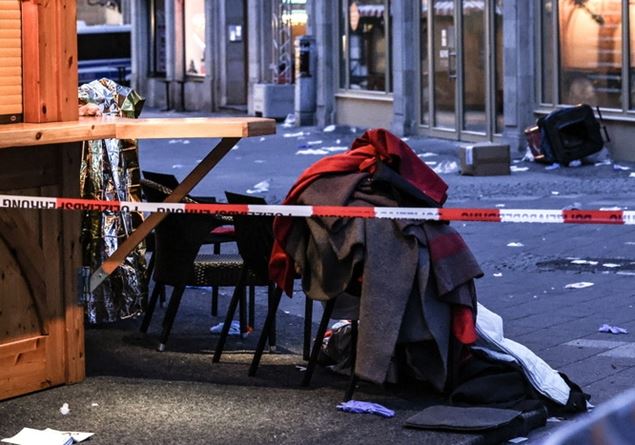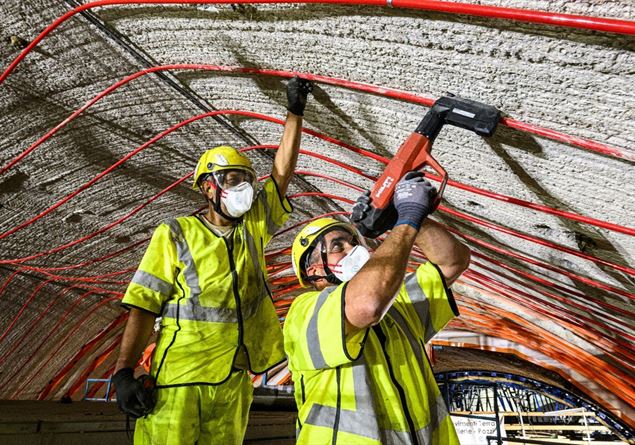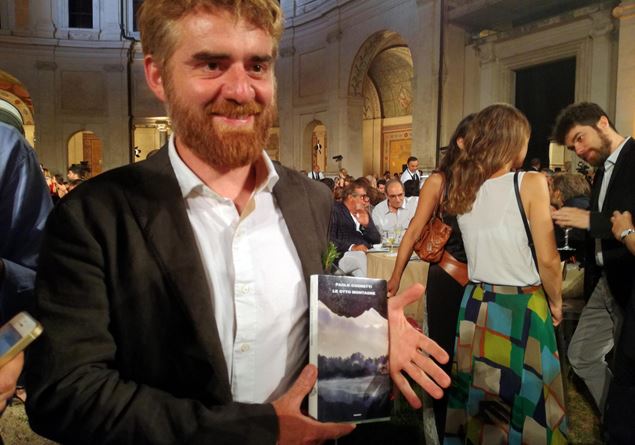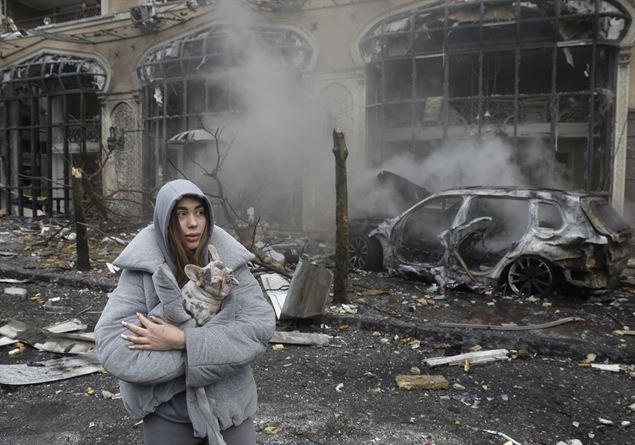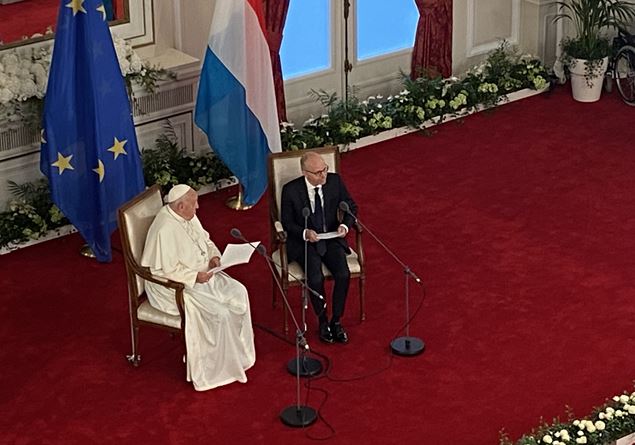
The Pope arrives in the heart of Europe, in Luxembourg which, first among the countries of the continent in terms of GDP per capita, also boasts an unprecedented welcome. In fact, 47 percent of its inhabitants are not indigenous. To this one of the six founding nations of the Union, Francis, on his 46th international trip, recalls the drama of the world wars and the role of this land which, «due to its particular geographical position, on the border of different linguistic and cultural areas», found itself to be «at the crossroads of the most relevant European historical events. Twice, in the first half of the last century, it had to suffer invasion and deprivation of freedom and independence”, underlines the Pontiff. But precisely for this reason, «taught by his history, the master story of life, starting from the end of the Second World War, your country has distinguished itself in its commitment to building a united and supportive Europe, in which each country, small or large, has its own rolefinally leaving behind the divisions, conflicts and wars caused by exasperated nationalisms and pernicious ideologies, ideologies are always a danger.”
And if, when clashes and violence prevail, those who find themselves on the border of the opposing powers are involved in spite of themselves, it is also true that, when “instead spirits finally rediscover ways of wisdom, and replace opposition with cooperation, then these same places become the most suitable to indicate, not only symbolically, the needs of a new era of peace and paths to follow”. This was the case for Luxembourg and for its capital, which, just over 200 kilometers from Brussels in the North, and just as many kilometers from Strasbourg in the South, is one of the three European capitals and home to numerous institutions including the Court of Justice of the Union, the Court of Auditors and the Investment Bank.
This is always done with the apex, let’s not forget that war is always a defeat. It is sad that today in a European country the investments that yield the most profit are those in weapons construction, says Francis. And in the meantime he recalls that Luxembourg has developed a «solid democratic structure” that “has the dignity of the human person at heart and the defense of its fundamental freedoms”. Despite being a small country in terms of territorial size and number of inhabitants (674 thousand in total), Luxembourg plays an important role on an international level and has become an economic and financial nerve center. An example of inclusion and development made possible by “patient work in building wise institutions and laws, which, by regulating the lives of citizens according to criteria of fairness and respect for the rule of law, place the person and the common good at the center , preventing and combating the dangers of discrimination and exclusion. Luxembourg is a country with open doors and has a beautiful testimony of integration and non-exclusion.”
Thinking of the 170 different countries from which a large portion of the inhabitants come, Francis hopes that the example of Luxembourg and its “will for solidarity will increasingly unite national communities” and that “it will be of help and an example” for other countries Europe and the world, «in indicating the path to take to welcome and integrate migrants and refugees. Furthermore, he renews “the appeal to establish relationships of solidarity between peoples, so that everyone can become participants and protagonists of an orderly project of integral development”.
Speaking to the country’s authorities, the Pontiff recalls the teachings of the Social Doctrine of the Church and the characteristics that development must have. In particular it focuses on two of them: «care for creation and brotherhood». In fact, says the Pope, development, «to be authentic and integral, must not plunder and degrade our common home, nature, and must not leave people or social groups on the margins. Wealth – let’s not forget – is a responsibility. Therefore, I ask that attention be always paid not to neglect the most disadvantaged nations, but rather that they be helped to recover from their conditions of impoverishment.” Only in this way can the number of those forced to emigrate “often in inhumane and dangerous conditions” be reduced.
Francis returns to talk about the war and the re-emerge «even on the European continent, of fractures and enmities which, instead of being resolved on the basis of mutual good will, negotiations and diplomatic work, lead to open hostilities, with their aftermath of destruction and death. It seems that the human heart does not always know how to preserve its memory and that it periodically gets lost and returns to the tragic paths of war. We are forgetful in this. And to cure this dangerous sclerosis, which makes nations seriously ill and risks throwing them into adventures with immense human costs, renewing useless massacresit is necessary to raise our gaze upwards, it is necessary that the daily life of peoples and their rulers is animated by high and profound spiritual values. And these values will be the ones that will prevent reason from going mad and the irresponsible return to making the same mistakes of times past, further aggravated by the greater technical power that human beings now make use of. There is an urgent need for those invested with authority to engage with perseverance and patience in honest negotiations with a view to resolving conflicts, with the spirit willing to identify honorable compromises, which jeopardize nothing and which instead can build security and peace for all».
Luxembourg, precisely because of its history, «can show everyone the advantages of peace compared to the horrors of war, of the integration and promotion of migrants compared to their segregationand on this I give you many thanks for this spirit of welcoming migrants, the benefits of cooperation between Nations in the face of the disastrous consequences of the hardening of positions and the selfish, short-sighted or even violent pursuit of one’s own interests. Allow me to add one thing. I saw the birth rate. Please more children, more children. I’m not saying more children and fewer dogs, I say this in Italy. To you I say more children.”
And, finally, taking up the motto chosen for this journey, «Pour servir, “To serve”» explains that «it refers directly and eminently to the mission of the Church, which Christ, Lord made servant, sent into the world as the Father had sent Him. But allow me to remind you that this, serving, is also for each of you the highest title of nobility, it is also the main task for you, the style to adopt every day.”

